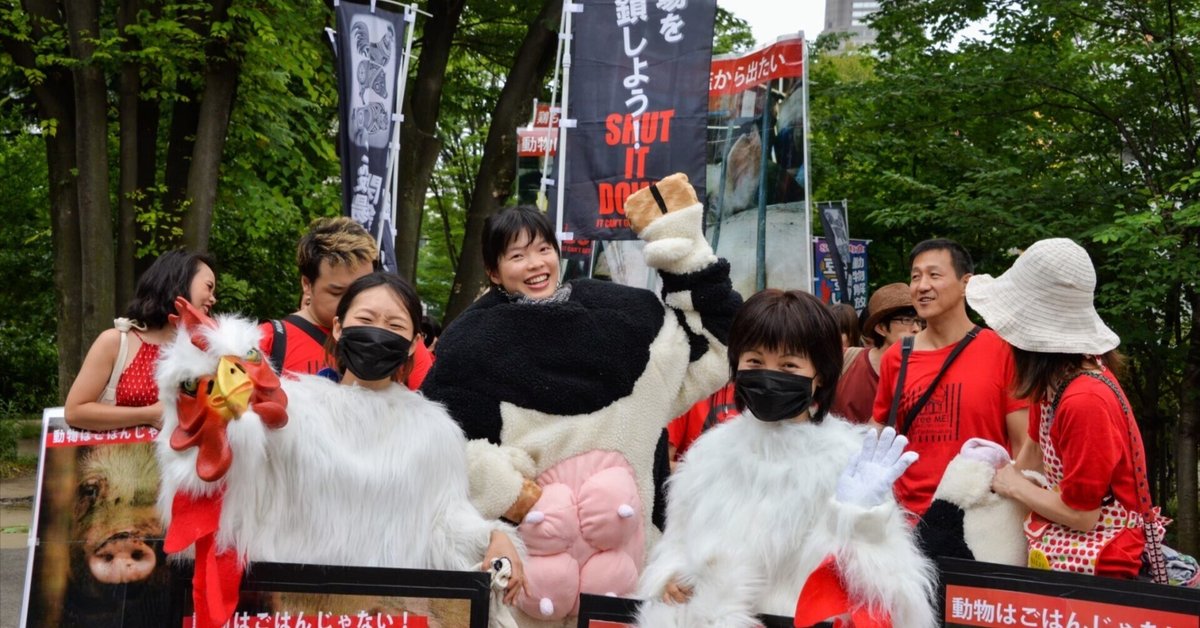
Interview with Yuan-Chih Lung (Mona) ①Veganism and #MeToo to Connect Beyond the Country
In July 2024, I interviewed Yuan-Chih LUNG(Mona), a vegan activist who guided me throughout my trip to Taipei. She talked about the social movement in Taiwan, her undercover investigations in other countries, the accusation of sexual harassment she received in graduate school, and tips on how to continue activism sustainably.
*Here is the Japanese translation
龍緣之 ( Yuan-Chih LUNG /Mona)
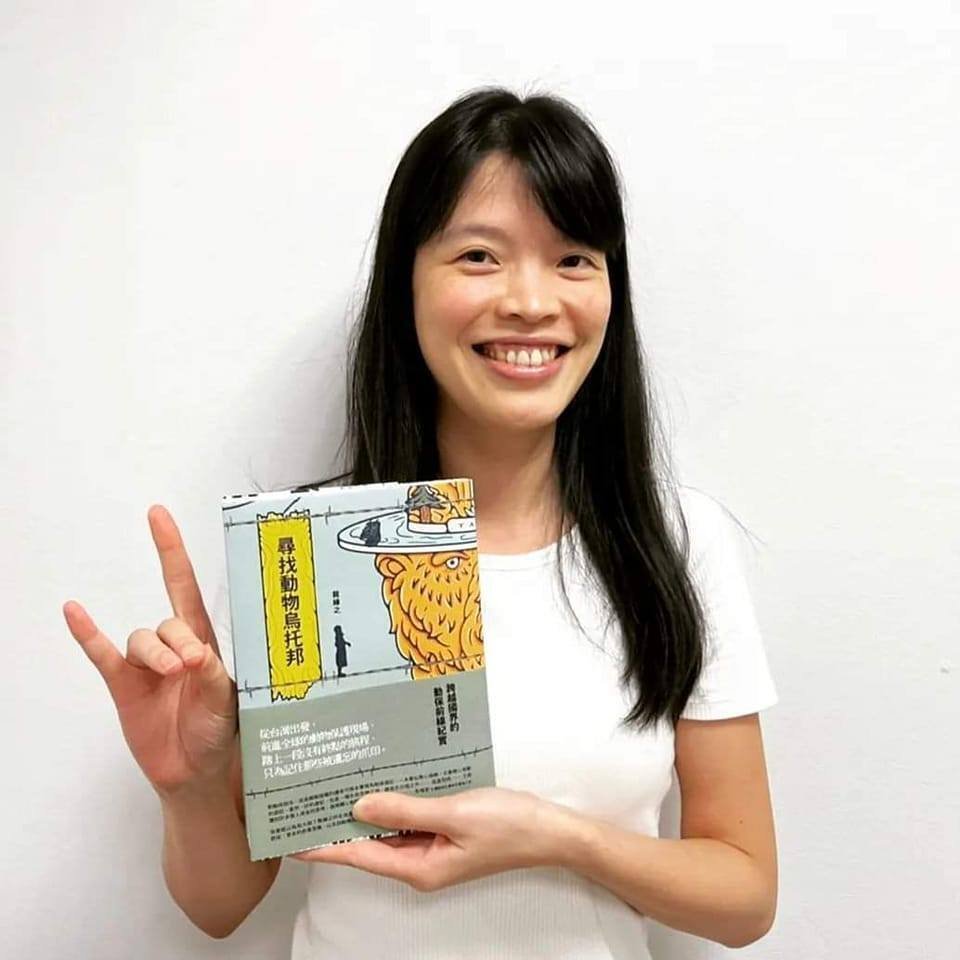
Yuan-Chih has conducted surveys and research in Europe and Asia, visiting breeding farms, nature reserves and zoos to explore the conservation and philosophical, artistic and social issues of animals and humans. She is the author of "SEARCHING FOR ANIMAL UTOPIA", "The Baby Fox’s Mother and the Mother Fox’s Baby" (co-authored withNoir-Noir SHIH), and "China's Fur Trade and its Position in the Global Fur Industry" (UK, 2019; Update 2020/2021), among others. She is a scholar, activist, and a grantee of Culture and Animals Foundation's, and currently serves as director of the Taiwan Human-Animal Studies . She has conducted a year of doctoral research as an exchange student at Tokyo Institute of Technology (now called Institute of Science Tokyo). She also founded the platform “Animal Peptalk”.
*Interviewer:Rena Fukazawa
*Proofreading Support:Ruby Marita Ramsden
Work as a “scholar-activist”
——Could you introduce yourself to us?
I’m Mona. I call myself a “scholar-activist”. I like to study, but I was unsatisfied with just philosophy and academics, and I felt strongly that I wanted to be involved in social movements as well, so I became a “scholar-activist”.
I am originally from Taiwan, but after graduating from university I moved to Beijing and became involved in animal protection activities. I learned a lot in Beijing, where there are many international organizations, conferences and workshops. I then started working as a part time staff for an international organization and did research abroad.
I also decided to pursue a PhD in Philosophy of Science, as I thought it would be useful for my work in the organization. My research topic was on panda conservation, so I did research on the history of panda conservation. After working for several years for international NGOs , I obtained my PhD degree, returned to Taiwan in 2018, and now I'm the director of Taiwan Human-Animal Studies Institute.
——What kind of activities does Taiwan Human-Animal Studies Institute do?
Our main activities are research and organizing conferences. There are about 8-10 directors and I am one of them, and in 2025 we are organizing a big Asian Animal Conference in collaboration with two other organizations in Taiwan.
——What made you interested in animal issues?
I was interested in animals from an early age, but I didn't realize that animals were the most marginalized victims in society. In high school, I started to become interested in various social issues such as feminism, the death penalty, environmental issues, and war, and I recognized animal issues as another theme, , so I decided to become a vegetarian after starting college. At that time, we didn’t have the term “vegan” yet, so we called it “vegetarian”. After college, I learned even more when my family adopted our first cat, and after realizing how much animals were suffering around the world, I decided to choose animal issues as my lifelong theme.
About undercover investigation
——You also engaged in undercover investigations in other countries. Which country have you visited so far?
First, I stayed in China for 8-10 years. Then I did investigations in Japan, Finland, Denmark, Norway, and Singapore. Although not undercover, I have visited the Netherlands, France, England, Germany, South Korea, the USA, India and Taiwan to conduct interviews.
——What was the experience like to go undercover on a factory livestock farm?
It was intense. I had to create fake business cards and create a story for my new identity. I was always nervous and felt that I might not be the best person to do this work. But I had to do it because no one else was. Going undercover on the farms was the only way to get in touch with the people who were buying and selling animal products.
I focused on the international fur trade. East Asia is the biggest consumer of fur products, and little research has been done in Nordic countries by Asian researchers, so I decided to do my own research. In China, these stories are not often told. So I wrote about this undercover work in detail in my book.
——You're truly a pioneer. Did you get help from any foreign organizations?
I was not hired by an organization; I did it by myself. I cooperate and share information with local and international organizations, but if I had been employed by an organization, my activities would have been more limited. Maybe because I was independent, I was able to act freely.
——I think it is very brave.
I'm not sure, but I think it's because... only a few people had the opportunity to do that overseas, and I thought I could be the person. The issue is so important, I just had to.
——Weren’t you scared?
I was scared. During the investigation, I always wanted to go to the toilet to relax.
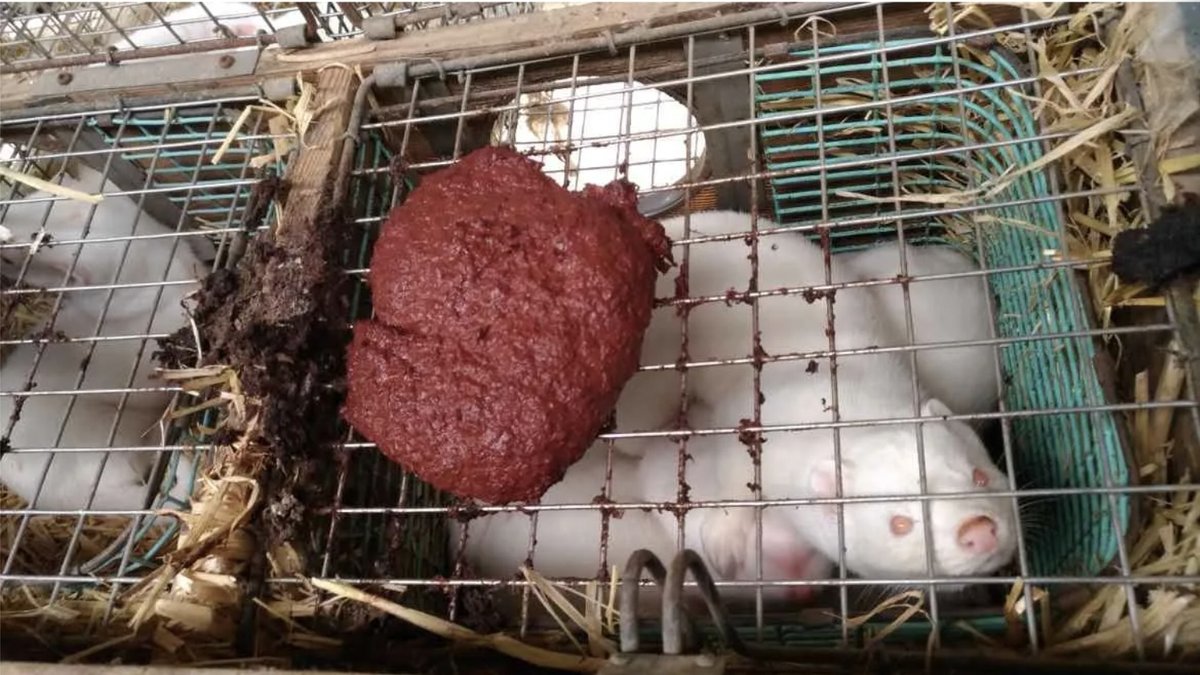
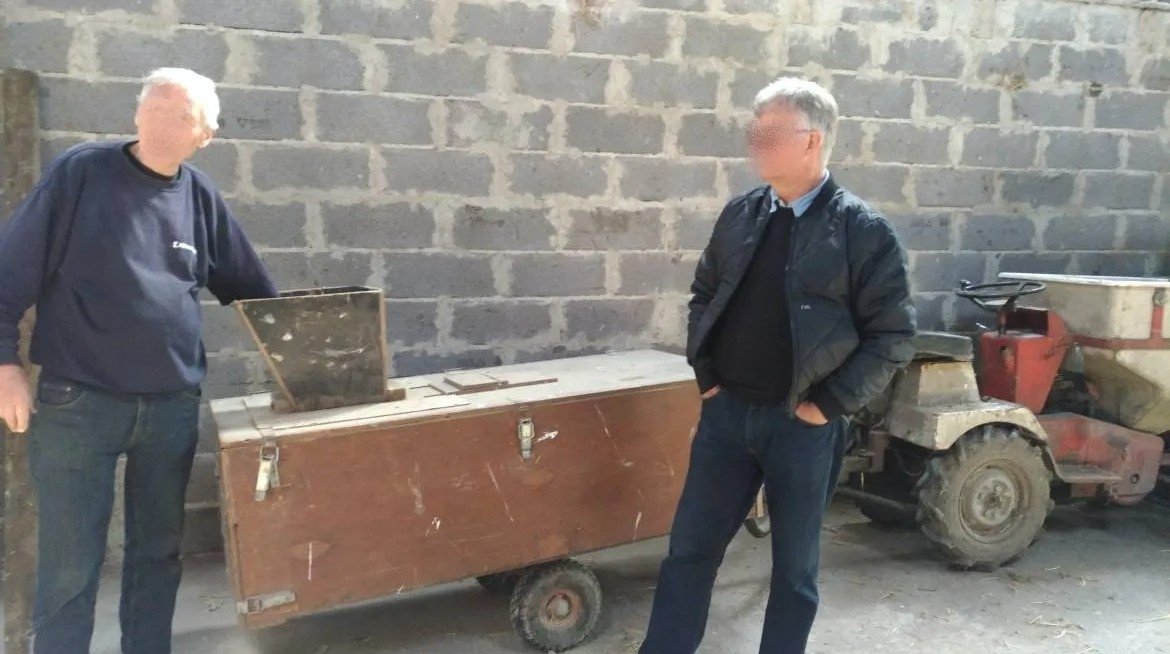
Experiences in China and Japan
——Among your experiences overseas, which place had the most impact on you?
There are two. One is Japan, the other one is China.
First, let's talk about China. Many people in Taiwan don't know much about mainland China. They don't have many opportunities to meet people there. Currently, tourists cannot visit Taiwan from mainland China. So I feel lucky that I was able to move to Beijing and live among the local people and activists.
In China, I saw many creative people sacrifice a lot of their personal lives in order to help animals. Most people don't care about animals, and since there are no animal protection laws in China, the situation is very dire. Yet, many people, including lawyers, scholars, local people, and children, are trying to help the animals. Since they cannot hold protests or demonstrations, they are always thinking of different ways of helping, which was very impressive to me.
For example, I have a friend who passed away a few years ago at a young age, and he founded an association in Xiamen, South China, focused on animal protection education. He had been organizing with local elementary and high schools about 20 years ago, which was really remarkable. He was neither rich nor a teacher at the school, but he organized a lot of activities. I can't imagine how difficult it must have been for him. It was impressive to see these people in China in different regions.
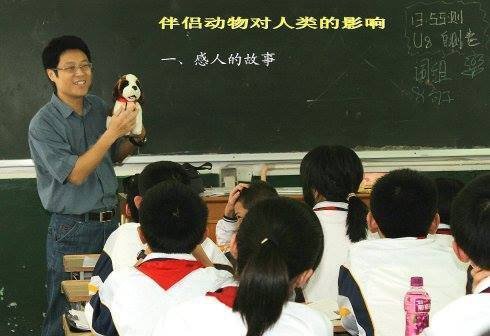
——How about Japan?
When I moved to Japan in 2015, I was burned out before it.
——What was the reason for that?
Several reasons, but mainly two. One was my relationship with my boyfriend at the time. He disagreed with me doing activism. He was a Chinese scholar and he wanted me to focus on studies and become a scholar too. For him, joining a social movement was nothing but a “waste of time”. He would say that he was interested in social issues, but he would not involve himself in activism. He said, “Why should I participate in such activities when I could be a professor at a university?” We were together for four years, but his way of thinking put me under a lot of pressure.
Another reason was that while I was dedicated to animal advocacy in China, I was also a graduate student and had to prepare for classes every day, making it very difficult for me to balance my studies with my activities.
Then one day, I got a call from my ex-boss at ACTAsia (an international NGO). I was worried that she would probably give me another mission, and was ready to say no, but she said, “ It's good news.” She recommended me for an internship at the Animal Rights Center.
I still wasn't sure if that's what I really wanted to do, but I contacted Chihiro Okada, the director of the Animal Rights Center, and went to Tokyo to begin my internship. I did not have many friends when I was a university student, and none who I was close with at Peking University, Tsinghua University, or Tokyo Tech (Tokyo Institute of Technology). But when I went to intern at the Animal Rights Center, I made many activist friends. I attended activities every week and went to the office frequently, and I met many volunteers and pioneering activists, which encouraged me.
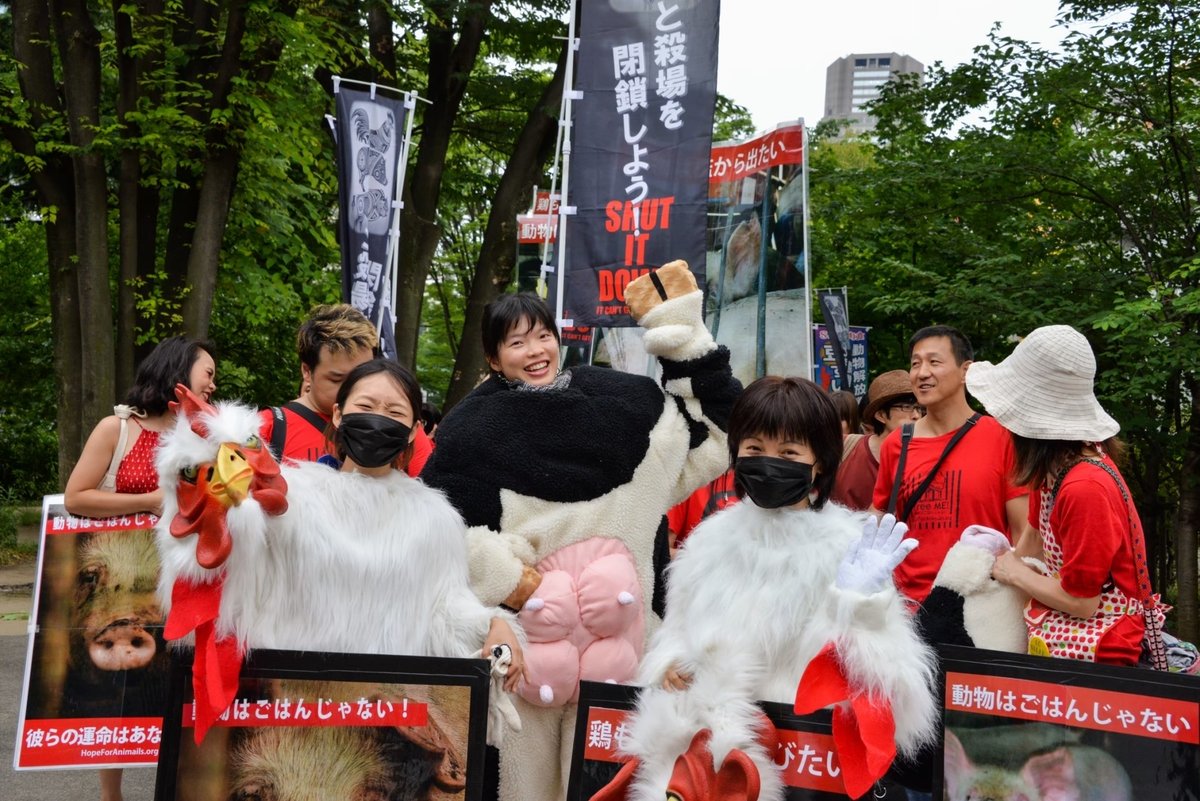
Social Movements and Partners --Men who don't want their partners involved in social movement
——I know you talked about your ex-partner before, but there are women around me who are suffering because their husbands or partners lack an understanding of social movements. Many men don't want their lovers or wives to be involved in social movements.
Yes, it’s very hard. I do think it’s important to share the same values with the people you spend a lot of time with. Especially for activists like us, whose values are a very important part of our lives, it is really hard when our friends and family don't share the same values as us.
My ex-boyfriend looked down on social movement activities. But even so, I still learned something from the experience. For example, I was active in sharing animal news and online campaigns at the time, but began to think that I could do something with an academic approach as well.
At the time, there were few people doing activism like mine or writing similar articles, so I began to think seriously about how I could effectively apply my advantages and interests to my field. I learned this new perspective through my relationship with him, but I would not recommend that kind of partnership to anyone else. There is no need to suffer.
Veganism and Animal Welfare in Taiwan
——How is veganism progressing in Taiwan?
I may not be the best person to talk about this topic, but I think veganism is very active in Taiwan. There are many vegan markets and the number of vegan restaurants and vegan cafes is growing. Not only in Taipei but in other cities as well. I think this is because the event organizers there are very good. Many workshops are held so that vegan businesses (vendors) and cooks can participate without necessarily having a storefront.
When I became a vegetarian or vegan 20 years ago, I was not well understood by the people around me, and often people thought I had health problems. But that situation did not last long. The way people think about veganism has already changed.
——Is the term “vegan” still not very common?
Veganism has become a popular idea in Taiwan, but we use different terms. For example, there is the term “素食(simple food),” which refers only to food, so it is not necessarily used for bags, shoes, etc. People also use the term “plant-based diet".
Taiwan's Minister of the Environment is either vegetarian or vegan, and he is very active in promoting a plant-based diet. Have you ever heard of such a high status politician in Japan being a vegan or vegetarian?
——There seem to be several politicians who are working on animal issues, but I am not sure if they are all vegan/vegetarian.
At every conference and meeting in Taiwan, you will be asked, “Are you a vegetarian? Are you vegan?”. It is the same in government-sponsored conferences and those sponsored by non-governmental organizations.
——That's amazing. In Japan, organizers rarely ask, and even if you say you are vegan, they often don't care. Yesterday, we went to “植境(Plantarium)” which is run by a Buddhist organization and a restaurant that is affiliated with it. It made me feel that it is important to cooperate with large organizations and governments. What challenges remain for veganism in Taiwan today?
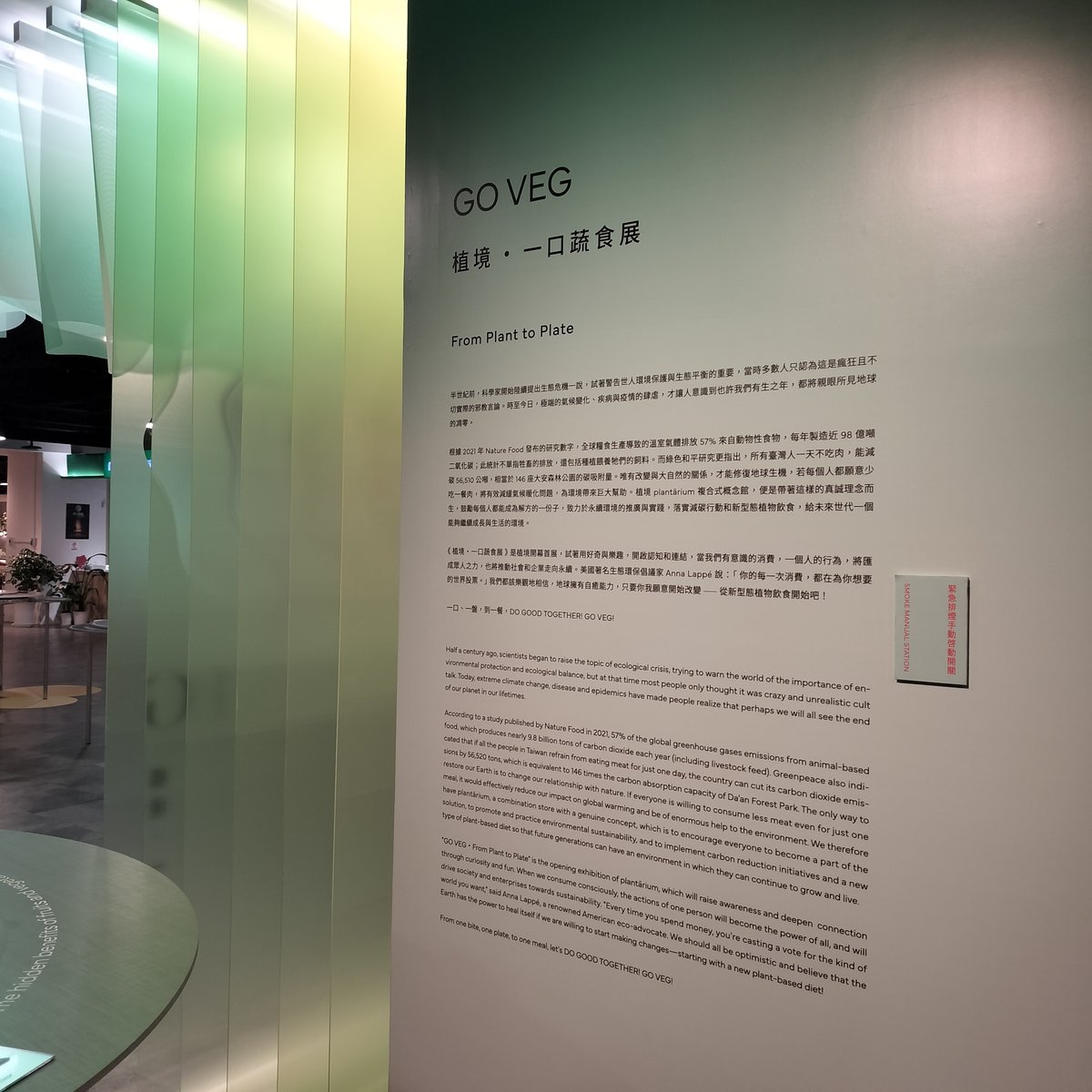
I think the animals’ situation is a problem. A lot of animal products are still consumed in Taiwan. In the future that number may decrease, but the animals still suffer from bad welfare situations. So my hope is that people will not only become a vegan, but also activists to change the situation of animals.
——Is the term “animal welfare” widely known in Taiwan?
It is getting popular. We can often see it in newspapers and TV news, and two years ago, an article on the welfare of farmed animals in Taiwan appeared on the front page of a major Taiwanese newspaper. We could not have imagined this 20 years ago. However, the idea of animal welfare is still unfamiliar to the average person.

For example, my parents care for animals and live a vegan lifestyle at home, but they do not use the term “animal welfare”. This is a professional concept. But for people working in social movements, activism, government, and universities, I think everyone understands the meaning of animal welfare.
The power of Buddhism and the culture of donation in Taiwan
——Do you think Buddhism in Taiwan has a significant influence on this country's movement?
Yes, maybe that’s one of the biggest influences. Not only Buddhism, local religions also have influence, but Buddhism is mainstream.
——Do you think that Buddhist monks and philosophy are widely respected by the Taiwanese people?
Taiwanese people donate a lot of money to Buddhist temples. In particular, local people often give large donations, and Buddhist temples in Taiwan are very wealthy. They have the power to accrue donations.
——In Japan, there are not so many Buddhist organizations supporting the veganism movement, and many social action groups are struggling to collect money. They cannot pay enough salary to their staff, and most of them are supported by volunteers. Is the situation the same in Taiwan?
I think it is very different. There are many animal organizations in Taiwan, and most of them pay their staff. I have not heard of many organizations not paying their staff. Some have part-time staff, but they are paid as well. In Taiwan, I have not heard of many organizations being supported only by volunteers.
——I think this is one of the reasons why social movements have become so difficult in Japan. It costs a lot of money and there is very little in return, so it is very difficult for a movement to continue.
In Taiwan, donating money is part of the culture. Full-time employees of animal and environmental protection organizations are not paid highly, perhaps a little more than minimum wage, but the staff is always paid. Not a lot, but they are paid.
About Mona’s fun activism --Art-based activities
——When I first met you, I was impressed by how you put stamps and cards with vegan illustrations in your pictures of food. I thought it was such a fun way to do activism. Your book also has a playful feel, with an “animal monopoly” illustration on the cover. Is this kind of social movement using art common in Taiwan?
Yes, I think so. There are many good designers and illustrators in Taiwan, and most of them are in agreement with animal advocacy, so many of them are willing to cooperate with animal protection groups.
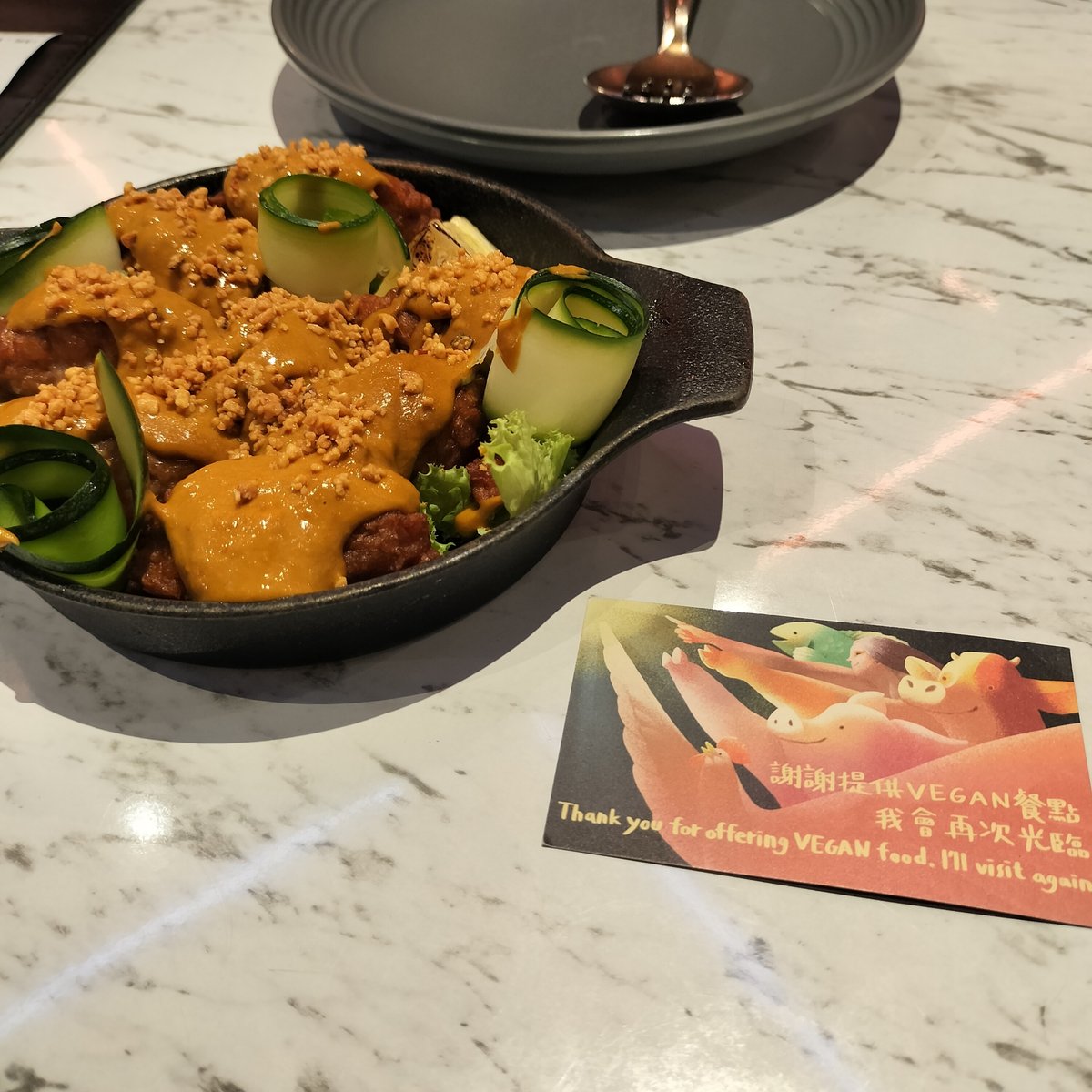
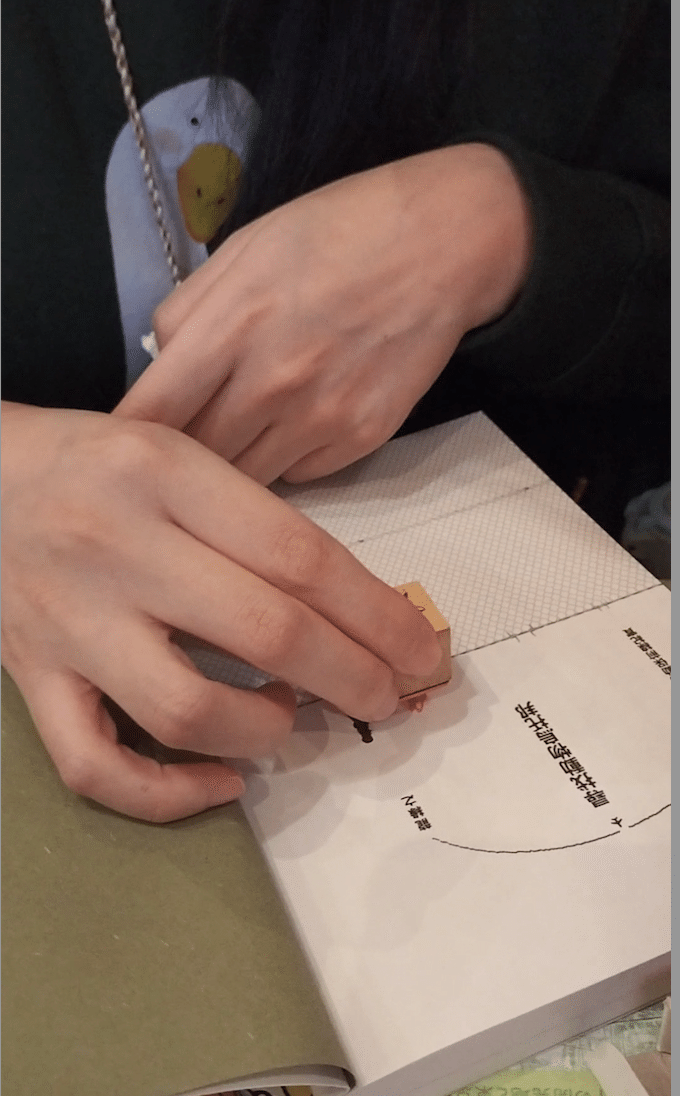
——When I created a short video that summarized the reality of factory farming in Japan, I originally wanted to collaborate with designers, but I was told that the images of livestock were “too cruel,” and in the end I could not get anyone to cooperate.
I know, it is cruel. But I have never heard of such a situation in Taiwan.
——Is it easy to find people to support your activities through art?
Yes. I think maybe it's because I always cooperate with people who already have the basic understanding about animal issues and ethics. For example, with the Fox Picture Book, Noir Noir SHIH invited me to join her from the initial idea generation stage. And another time I worked together with Herbibobo Creative Studio, who are vegan designers and also a couple. It's mutual aid. We help each other. I can promote their works and they can promote my ideas about animals.I have never met someone who says no to that kind of collaboration.

ーーThe other day, when I met some of your activist friends, I was touched by their friendliness. In Japan, I find it difficult to relate to other activists. For example, one woman scolded me recently, saying, “You are not serious enough”. This is something I hear not only from myself but also from others around me. I believe that social movements in Japan should be more fun.
Yes, I agree with you, and I think many people in Taiwan think the same way. People who say you are not “serious enough” would find Taiwanese people too relaxed, if they see the activism in Taiwan! If you go to a party, everyone is laughing and joking all the time, and sometimes you have to say, “Let's talk about something serious!” We are serious about animal issues, but not so serious in our daily lives. Taiwan is a relaxed country.
Workshops in schoolsーInvolving the younger generation
——When you were a school teacher, what classes did you teach?
When I was teaching at a famous high school in Taiwan--the class was a special class for elite students, focusing on language and creativity--I taught a compulsory class in animal ethics for one year. It was an unforgettable experience. I introduced them to animal issues and animal ethics and showed them many art pieces about animals, including popular songs. At the end of the semester, all students were required to submit research and artwork about animals, and they submitted paintings and songs. I was particularly impressed with the songs written by two female students.
I think that the younger generation is naturally supportive of our social movements. So education in high schools and universities is very important. It is not that social movements are scary, or something only for adults; they are also important for teenagers. Teenagers have the power and potential to create new paths. When I taught the class, I was so moved that I almost cried sometimes. They care a lot about animals, they gave great presentations and were fun. Taking this class has given me a lot of energy.
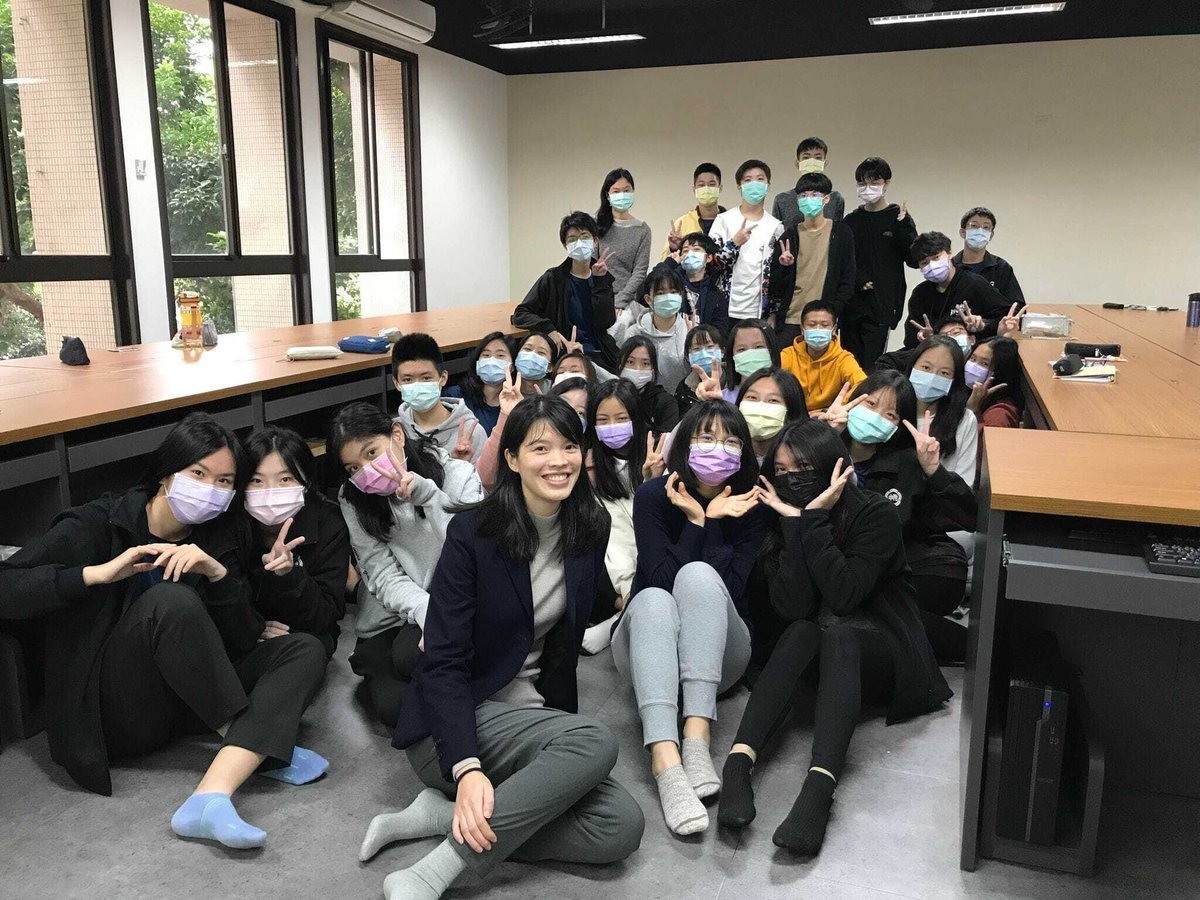
——You mentioned that you also gave a talk at a small school in rural China this year (2024). How did those students react to your speech?
Yes, there I spoke about animal advocacy, art, and philosophy. At first everyone looked serious, opening their notebooks and holding pencils in their hands. But my lecture was not a formal class. I just offered a few ideas about social movements and artwork.
For example, I asked them questions like, “What is the name of your dog?” and other questions. In the animal advocacy world, we don't call them pets, we call them “companion animals”. This is a very new concept to their daily lives and they seemed to find it interesting. I think most of the participants agreed with the idea that we should not abuse animals, that animals have feelings and that we have an obligation to animals.
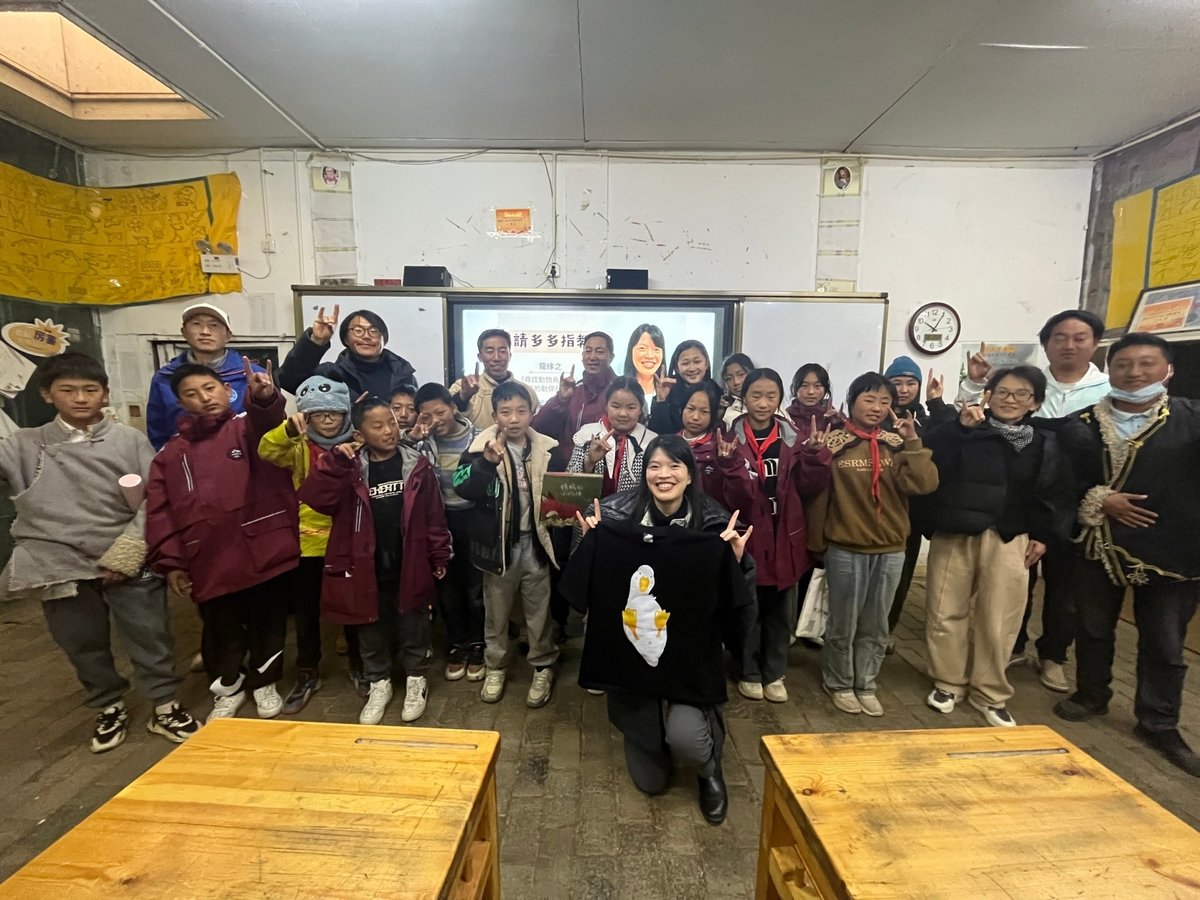
→Continue to (2)
いいなと思ったら応援しよう!

